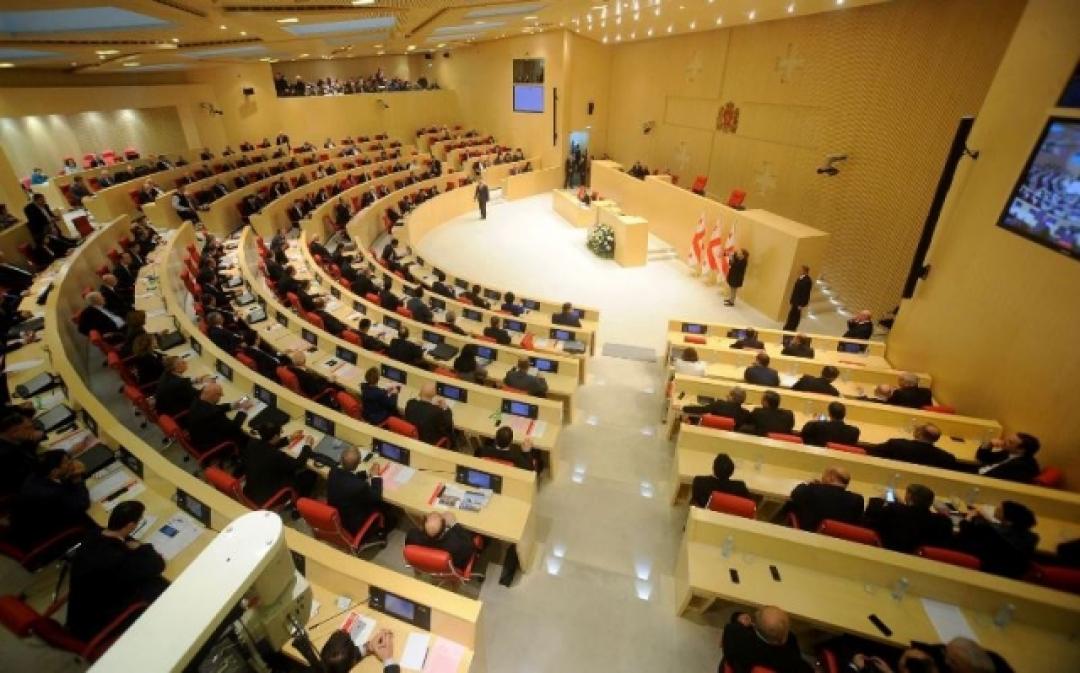
Saakashvili's party faces a dilemma

The parliamentary faction of the opposition United National Movement party must either start active parliamentary activities or leave parliament, Roman Gotsiridze, a member of the National Movement faction, told reporters.
“The approach - to enter parliament one-time to participate in voting related to the Constitution, or only to participate in the work of an interim commission of inquiry, is a kind of preserving the worst situation. Either a fight from parliament and the maximum use of its levers (including international ones) or a refusal to use these levers with the expected results (i.e. leave parliament). This is my position,” the politician said.
At the same time, according to Gotsiridze, in this regard, he will follow the party’s decision.
“Whichever path the party chooses, I will submit to that, as it happened before, despite the fact that I myself adhered to a radically different position (on entering parliament, signing the Charles Michel agreement, boycotting parliament),” he said.
After a long break, on January 10, a meeting of the political council of the opposition United National Movement, founded by ex-President Mikheil Saakashvili, was held, as a result of which the chairman of the party, Nika Melia, left the position of chairman of the political council, yielding it to the executive secretary of the party, Kobe Nakopi. At the same time, Melia retained the post of party leader. Nakopiya's deputy in the new position will be another party member - Akaki Minashvili. In addition, by the decision of the political council, Petre Tsiskarishvili took the post of executive secretary instead of Nakopia.
As Nika Melia said at a briefing after the meeting of the political council, "an active process of renewal" will continue around the country.
Recall that on October 2 and 30, 2021, elections to local self-government bodies were held in Georgia in two rounds. In the first round, the ruling Georgian Dream won 46.7% of the vote on party lists, winning 44 out of 64 municipalities. In the second round of voting, the ruling party won 19 of the 20 remaining cities and municipalities, including Tbilisi, Batumi, Kutaisi, Poti, and Rustavi (except for the Tsalenjikha municipality, where the candidate for mayor from the ruling party won). In Tbilisi, incumbent mayor Kakha Kaladze received the support of 55.6% of voters. In addition, 42 majoritarian deputies of local assemblies were elected in 24 constituencies.
As a result of the vote, the opposition group, headed by Saakashvili's United National Movement, refused to recognise the election results, claiming that they had been rigged. Opposition leaders said the election results were affected by the number of cancelled ballots and were held against a backdrop of violence, bribery, and threats. However, despite this, on January 7, members of the UNM faction joined parliamentary activities, after which they selectively took part in its work.
See Also


Simonyan: “Armenia Should Trade with Turkey and Azerbaijan Instead of Closing Borders”

Mirzoyan Meets US Deputy Assistant Secretary Joshua Huck

Azerbaijani President Holds Talks with UAE and German Business Delegations on Economic Cooperation

Grigoryan Confirms Armenia’s Readiness to Dissolve OSCE Minsk Group Upon Peace Treaty Signing

